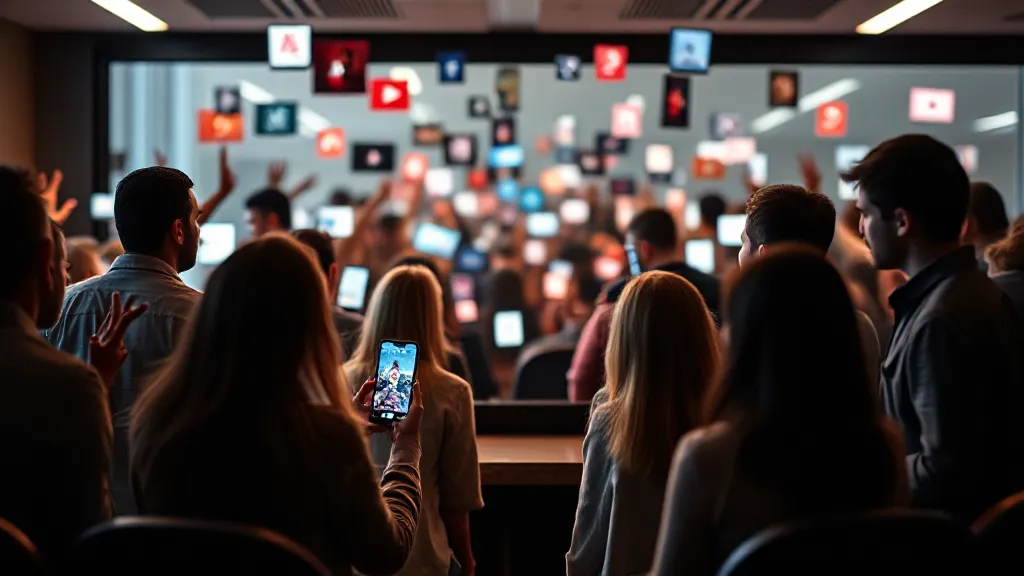Have you ever noticed how different the world feels when you’re scrolling through social media compared to when you’re having a face-to-face conversation with someone? You’re not imagining it. New psychological research reveals why our online experiences can feel so emotionally draining and disconnected from our daily reality.
The Funhouse Mirror Effect
Psychology professor Jay Van Bavel’s recent research shows us something remarkable: social media isn’t actually reflecting what most people think or feel. Instead, it’s more like a funhouse mirror that distorts our view of the world around us.
Here’s the surprising truth: just 10% of social media users create about 97% of political content online. This means that the overwhelming majority of what we see and react to comes from a very small group of extremely active users. Most people aren’t constantly posting, arguing, or sharing outrageous content – but because these hyperactive voices are so loud and visible, they shape our entire impression of what’s happening online.

How This Affects Our Mental Well-being
When we’re constantly exposed to the most extreme voices, something concerning happens to our understanding of the world. We begin to believe that society is much more divided, angry, and hostile than it actually is. This psychological phenomenon, called “pluralistic ignorance,” occurs when we misunderstand what others truly believe based on limited or skewed information.
Think about it: if the only conversations you heard about a topic came from people who felt most passionately (and often angrily) about it, you might assume everyone feels that way. But in reality, most people hold more moderate, nuanced views that simply don’t get the same visibility online.
The Emotional Toll
This distortion doesn’t just affect our opinions – it impacts our emotional well-being. When we constantly see extreme, emotionally charged content, we may start to feel:
- More anxious about the state of the world
- Increased hostility toward people who disagree with us
- A sense that meaningful dialogue is impossible
- Overwhelmed by constant conflict and negativity
The research shows that these feelings often don’t match our actual, lived experiences with the people in our communities.

A Path Forward: Digital Wellness
The good news is that understanding this phenomenon gives us tools to protect our mental health online. Van Bavel’s research included a fascinating experiment: when people unfollowed the most divisive accounts in their feeds for just one month, they reported feeling 23% less animosity toward others. Many participants felt so much better that they chose not to refollow those accounts even after the study ended.
Practical Steps for Healthier Online Experiences
Just as we might choose nutritious foods for our physical health, we can curate our digital environment for our mental well-being:
Be mindful of your information diet: Notice how certain accounts or types of content make you feel. Are they adding value to your life or increasing your stress?
Seek out diverse, moderate voices: Remember that the most reasonable perspectives are often the quietest ones online.
Take breaks from engagement: You don’t need to respond to every provocative post or join every heated discussion.
Focus on real-world connections: The conversations you have with people in your daily life are often more representative of how most people actually think and feel.
The Bigger Picture
Understanding that a small minority of users creates most of the toxic content we see online can be genuinely liberating. It means that the overwhelming negativity we often encounter isn’t representative of humanity as a whole. Most people, like you, are simply trying to live their lives, connect with others, and find some joy and meaning in their daily experiences.
By recognizing how social media can distort our perception of reality, we can engage with these platforms more intentionally and protect our mental health in the process. The goal isn’t to avoid technology altogether, but to use it in ways that support rather than undermine our well-being and our connections with others.
Remember: the online world you see is not the whole world. Behind every inflammatory post are millions of people living quieter, more balanced lives – people who, like you, want connection, understanding, and peace more than conflict.
